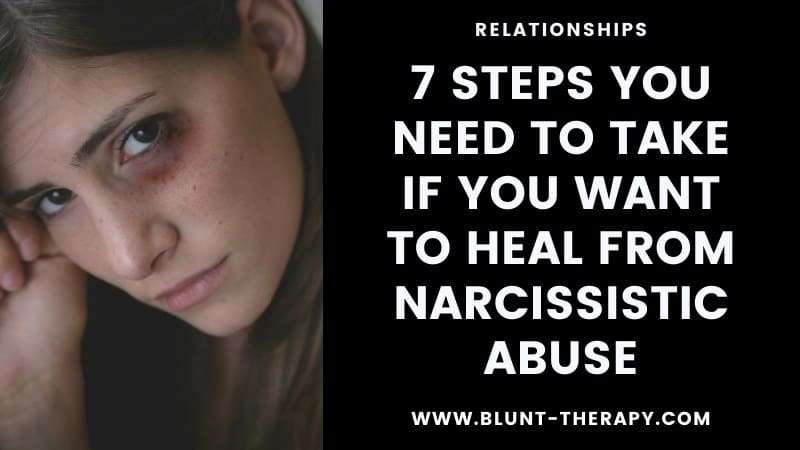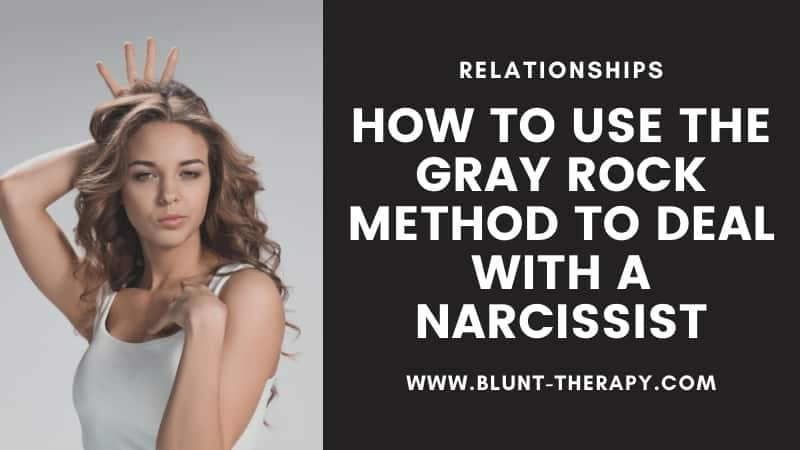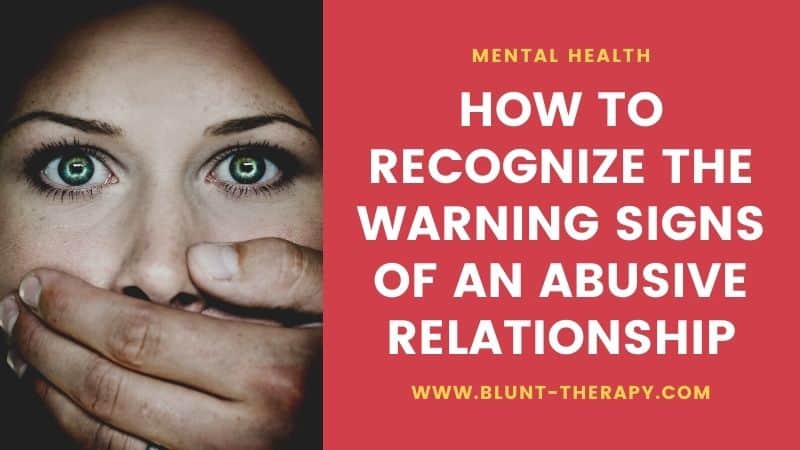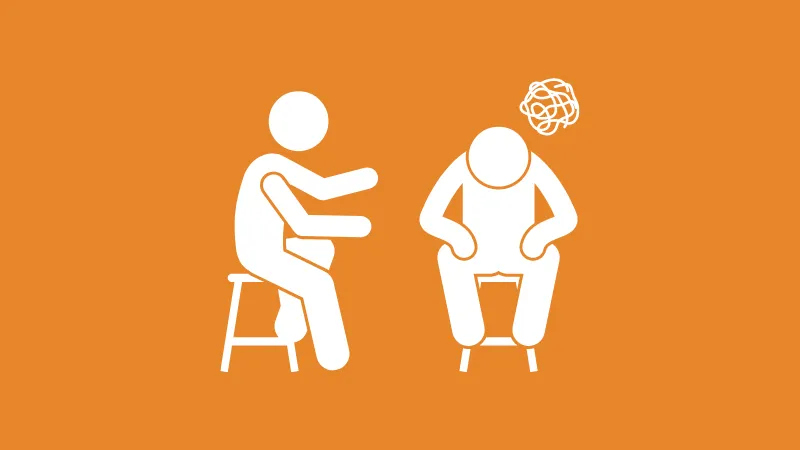Table of Contents
Affiliate link notice: As an affiliate of BetterHelp and other third-party vendors, We will receive compensation if you make a purchase using the links provided on this page. For more information, visit our disclosure page.
Last Updated on December 12, 2021 by Randy Withers, LCMHC
Do you struggle with anxiety? Do phobias, social anxiety, or panic attacks disrupt your life and threaten your relationships?
Overcoming relationship anxiety is important for anyone who values connection with others. It takes work and perseverance, but you are absolutely capable of doing it.
If your goal is to learn ways to keep anxiety from ruining your relationships, this post is perfect for you.

How Anxiety Interferes With Relationships
Anxiety can have a devastating effect on relationships if you let it. Jealousy, controlling behaviors, a poor sense of self-worth, and self-sabotage are all byproducts of unchecked anxiety.
It’s important, too, to remember that anxiety and worry aren’t always the same thing. Worry is a symptom of anxiety, but it’s hardly the only one. Other symptoms include:
- Difficulty concentrating
- Trouble making decisions
- Feelings of dread
- An inability to relax
- Obsessive thoughts.
None of those behaviors is good for a relationship.
Ironically, constant anxiety creates a vicious cycle where you’re trapped worrying about the success of your relationships, only to find that our constant worrying is the very thing that threatens them.
Not sure if you have relationship anxiety? Watch this video:
How To Keep Anxiety From Ruining Your Relationships
So, how do you keep anxiety from ruining your relationship? In this guide we’ll discuss five things you can start doing today.
1. Avoid seeking constant reassurance
When you feel anxious and worried, often your first instinct is to seek reassurance. For example, you might ask your partner if they still want to be with you, or make jokes about them leaving.
While it is entirely normal to seek validation from your partner, people who suffer from low self-esteem often take this to an extreme.
We all deserve to know that we are loved and valued in a relationship, yet it can often be counterproductive to constantly seek reassurance. If your partner feels like you do not believe them, they’ll wind up resenting you. This can push them away and create a self-fulfilling prophecy.
Instead of rushing to seek reassurance as soon as anxious thoughts arise, it is better to challenge these thoughts, and focus on the ways your partner shows affection.
2. Communicate your struggles with your partner
If there is one piece of advice that is always true in relationships, it is this: communication is key. Sharing your struggles with your partner can help you to understand one another and bring the two of you closer together.
Showing vulnerability is not only essential for cultivating a serious relationship—it also shows that you trust them. If your partner loves you, they will want to show you that they are worthy of that trust by helping you when they can.
Another reason to let your partner know that you suffer from anxiety is that they might not know! Telling them gives them a chance to support you. It also gives them insight into your behaviors.
3. Lean on friends and family for support
While you should certainly be able to rely on the support of your partner, it is important not to expect them to be your only form of support.
It is usually difficult for one person to feel solely responsible for the wellbeing of another, even if that person is their partner. This puts a lot of emotional strain on them, which can cause them to see the relationship as more of a task than as something to be enjoyed.
The best thing to do if you require a lot of support is to divide it among multiple people who care for you.
Having a wider support network of friends, family, and—yes—your partner is a much better solution for everybody than “putting all of your eggs in one basket” and relying solely on one person.
4. Practice acceptance
Anxiety often comes from attempting to control things that are, in fact, out of our control. For example, becoming fixated on how other people perceive us is a common feature of living with anxiety.
This can be destructive to our happiness and to our relationships with others.
So, how do you overcome anxiety? The answer is by practicing acceptance.
Acceptance means that you acknowledge reality. And reality is often not what you think is true, but rather what is actually true.
In relationships, we often mistake feelings for facts. For example, just because we feel our partner is cheating on us doesn’t make it true.
Acceptance of things that we cannot change, or in fact do not actually need to change, can lessen the grip of anxiety, making our lives and relationships more enjoyable.
There are many ways to practice acceptance, including therapy and mindfulness exercises. It’s also important to learn breathing exercises. They help a great deal.
God, grant me the serenity to accept the things I cannot change, the courage to change the things I can, and the wisdom to know the difference.”
The Serenity Prayer
5. Seek help from a licensed mental health professional
Anxiety disorders are the most common form of mental illness in the US. Around 40 million people in the US—or almost a fifth of adults—suffer from some form of anxiety disorder.
The most common types of anxiety are Generalized Anxiety Disorder (GAD), and Social Anxiety Disorder (SAD). One of the features of social anxiety is constantly worrying about your relationships with other people.
One of the most effective ways that you can cope with anxiety is to enlist the help of a licensed mental health professional such as a psychiatrist or therapist. If finding a therapist in your local area is difficult for you due to financial or other constraints, you may find online therapy more convenient, yet still highly beneficial.
Therapy can help you to understand, challenge, and overcome anxiety and the problems that it causes, enabling you to have healthy and enjoyable relationships.
While anxiety is debilitating, it’s also treatable. A licensed therapist can help you learn new coping skills and defeat anxiety-inducing thoughts. In time, you’ll learn how to keep anxiety from ruining your relationships for good.
Final Thoughts
If your anxiety threatens your relationships, it’s time to stop worrying and to start making positive changes.
While it’s important to have a partner who loves and supports you, it’s equally important for you to take steps to manage and control your anxiety so that it no longer consumes you.
It’s also important to remember that it’s not your partner’s job to fix your anxiety. Their job is to support you. If you want to keep anxiety from ruining your relationships, it’s up to you to do the work.
What are some other ways to keep anxiety from ruining your relationships? Leave your comments below!
References
- How to Get Over Relationship Anxiety
- Dating Someone With Anxiety: What You Need to Know and Do
- How Friends and Family Can Help
- 3 Benefits of Acceptance
- The Serenity Prayer and Twelve Step Recovery
- Facts & Statistics – ADAA









